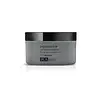PCA Skin Pigment Gel Versus PCA Skin Pigment Bar
What's inside
What's inside
 Key Ingredients
Key Ingredients

 Benefits
Benefits

 Concerns
Concerns

 Ingredients Side-by-side
Ingredients Side-by-side

Glycerin
HumectantCocos Nucifera Oil
MaskingElaeis Guineensis Kernel Oil
EmollientRicinus Communis Seed Oil
MaskingWater
Skin ConditioningSodium Hydroxide
BufferingCarthamus Tinctorius Seed Oil
MaskingSorbitan Oleate
EmulsifyingSorbitol
HumectantAzelaic Acid
BufferingKojic Acid
AntioxidantHamamelis Virginiana Water
AstringentGlycine Soja Protein
EmulsifyingCamellia Sinensis Leaf Extract
AntimicrobialAlcohol
AntimicrobialCalcium Ascorbate
AntioxidantGlucosamine Hcl
Maltose
MaskingNiacinamide
SmoothingSodium Lactate
BufferingTannic Acid
AstringentAniba Rosodora Wood Oil
AstringentGlycerin, Cocos Nucifera Oil, Elaeis Guineensis Kernel Oil, Ricinus Communis Seed Oil, Water, Sodium Hydroxide, Carthamus Tinctorius Seed Oil, Sorbitan Oleate, Sorbitol, Azelaic Acid, Kojic Acid, Hamamelis Virginiana Water, Glycine Soja Protein, Camellia Sinensis Leaf Extract, Alcohol, Calcium Ascorbate, Glucosamine Hcl, Maltose, Niacinamide, Sodium Lactate, Tannic Acid, Aniba Rosodora Wood Oil
Ingredients Explained
These ingredients are found in both products.
Ingredients higher up in an ingredient list are typically present in a larger amount.
Alcohol comes in many different forms. Different types of alcohol will have different effects on skin. This ingredient is usually an astringent alcohol.
These alcohols are drying on the skin. They may strip away your skin's natural oils and even damage your skin barrier. Astringent alcohols may also irritate skin.
Other types of astringent alcohols include:
According to the National Rosacea Society based in the US, you should be mindful of products with these alcohols in the top half of ingredients.
Any type of sanitizing product will have high amounts of alcohol to help kill bacteria and viruses.
Fatty alcohols come from plant oils such as coconut oil. These can help hydrate the skin and are non-irritating. Some fatty alcohols include cetyl and stearyl alcohol.
Learn more about AlcoholAzelaic acid is a multitasker ingredient that helps treat acne, pigmentation, and irritation. It is a great option for sensitive skin.
What makes azelaic special?
The best thing about azelaic acid is it's gentleness. It's generally well-tolerated and safe to use alongside other actives like niacinamide or salicylic acid.
Unlike AHAs, azelaic acid will not make you photosensitive/sun sensitive.
You can find this ingredient naturally occurring in grains like wheat, rye, and barley. In cosmetics, azelaic acid is typically lab-made, which is more stable and effective.
Learn more about Azelaic AcidHamamelis Virginiana Water is made by distilling parts of the witch hazel plant. You can also call this ingredient "witch hazel water".
The name 'Hamamelis Virginiana Water' refers to the distillation product used in cosmetics. On the other hand, 'Witch Hazel' refers to the active drug ingredient.
Unless it is specified to be non-alcohol, many types of witch hazel ingredients are distilled in denatured alcohol.
Witch Hazel water is an astringent, anti-inflammatory antioxidant, and antibacterial ingredient.
It contains tannins. Tannins have a drying effect when used on skin by constricting proteins. The constriction also minimizes the appearance of pores.
Both the tannins and fragrance found in witch hazel may be skin-sensitizing.
Witch hazel water gets anti-inflammatory and antibacterial properties from its catechin and gallic acid content.
Indigenous groups have used witch hazel to help treat inflammation in North America for centuries.
Learn more about Hamamelis Virginiana WaterKojic acid comes from fungi and can also be from fermented foods. It helps even out skin tone and reduce hyperpigmentation.
This ingredient works by blocking tyrosine, an enzyme that starts the process of skin darkening.
Kojic Acid is antifungal and often used to treat fungal infections. Additionally, it can help fight bacteria with its antimicrobrial properties. This can help treat acne as well.
A similar ingredient is arbutin.
Learn more about Kojic AcidWater. It's the most common cosmetic ingredient of all. You'll usually see it at the top of ingredient lists, meaning that it makes up the largest part of the product.
So why is it so popular? Water most often acts as a solvent - this means that it helps dissolve other ingredients into the formulation.
You'll also recognize water as that liquid we all need to stay alive. If you see this, drink a glass of water. Stay hydrated!
Learn more about Water